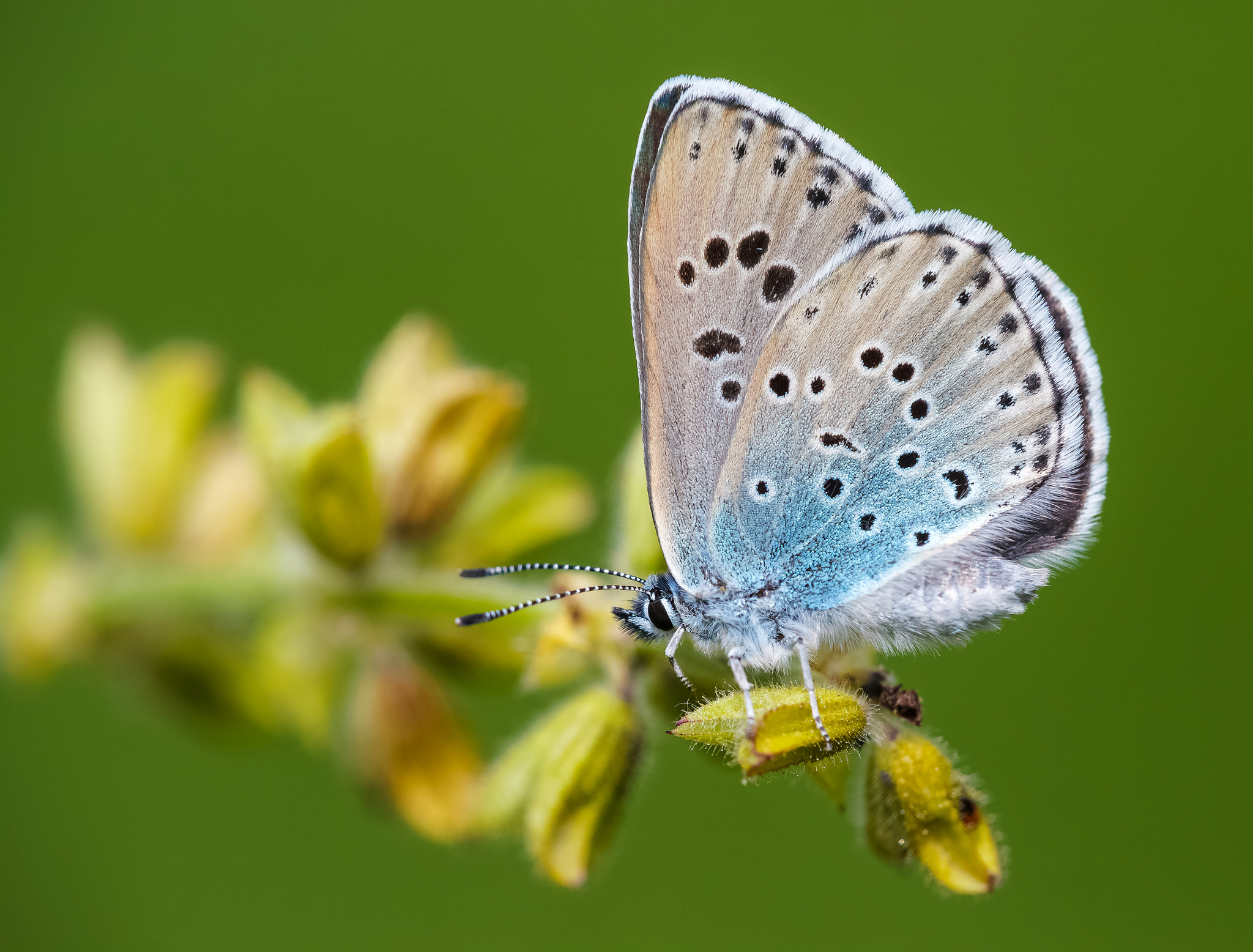A flower-strewn Cotswold valley that could become home to the UK’s rarest butterfly has been awarded prestigious National Nature Reserve status by Natural England.
Butterfly Conservation’s Rough Bank reserve sits at the head of the Slad Valley near Stroud, a landscape evocatively brought alive by Gloucestershire writer Laurie Lee in his autobiographical 1959 novel Cider With Rosie.
The flower-rich limestone grassland reserve, which will be officially opened on August 28th, is a wildlife haven boasting rare plants, butterflies and moths and is one of the few sites in the UK where it is possible to see six species of blue butterfly.
Butterfly Conservation plan to reintroduce the globally endangered Large Blue butterfly to the nationally important site in the future. The Large Blue became extinct in the UK in 1979 and is threatened across the world, but painstaking conservation work has led to its re-introduction at a tiny number of sites in Southern England.
The Rough Bank reserve could become an important site for the species as it expands back across the Cotswolds from its re-introduction base in Somerset’s Polden Hills.
The reserve, purchased by Butterfly Conservation two years ago with the help of a significant grant from Natural England, will become part of the Cotswolds Commons and Beechwoods National Nature Reserve (NNR) run in collaboration with Natural England and the National Trust.
The reserve is biologically rich – the main area of flower-rich grassland is a Site of Special Scientific Interest (SSSI) and is home to 33 species of butterfly, 38 species of nationally scarce moths and 12 species of orchid.
Rough Bank is set to become a favourite with butterfly enthusiasts as it is one of the few locations where it is possible to see six species of blue butterfly - the Adonis Blue, Chalk Hill Blue, Small Blue, Holly Blue, Common Blue and Brown Argus.
Dr Martin Warren, chief executive of Butterfly Conservation, explained: “We were thrilled to be able to buy Rough Bank to preserve a vital site for butterflies in the Cotswolds. Butterflies are in steep decline so it is important that such sites are managed in the best possible way for wildlife. We are extremely proud that it has now been given this top reserve designation.
“The Large Blue is such an iconic butterfly and the programme to reintroduce it to the Cotswolds will help its global survival. For Butterfly Conservation to actually have a site of our own where we can contribute to that effort is critical. There isn’t a date set for the re-introduction, but it will happen sometime in the future.”
The National Nature Reserve will be officially opened on Thursday 28th August by Andrew Sells, the Chairman of Natural England.
Mr Sells said: “Rough Bank is a real conservation success story and the hard work to acquire this site and bring it into the Cotswolds Commons and Beechwoods National Nature Reserve is well worth it.
“The NNR is already a fabulous site for butterflies, moths and wildflowers and expanding it can only benefit the conservation work going on there. I’m delighted that Natural England was able to support this important project, which brings real gains for wildlife and the many thousands of people who visit and know this Reserve.”
England’s 224 National Nature Reserves (NNRs) form part of a UK-wide network of nature reserves covering England, Scotland, Wales and Northern Ireland. Natural England manages 143 of these NNRs to make sure our finest wildlife and geological sites are protected, conserved and enhanced for present and future generations.
Rough Bank is being managed by local volunteers from the Gloucestershire Branch of Butterfly Conservation in association with Natural England and the National Trust. New volunteers are welcome to help monitor and manage the reserve.


